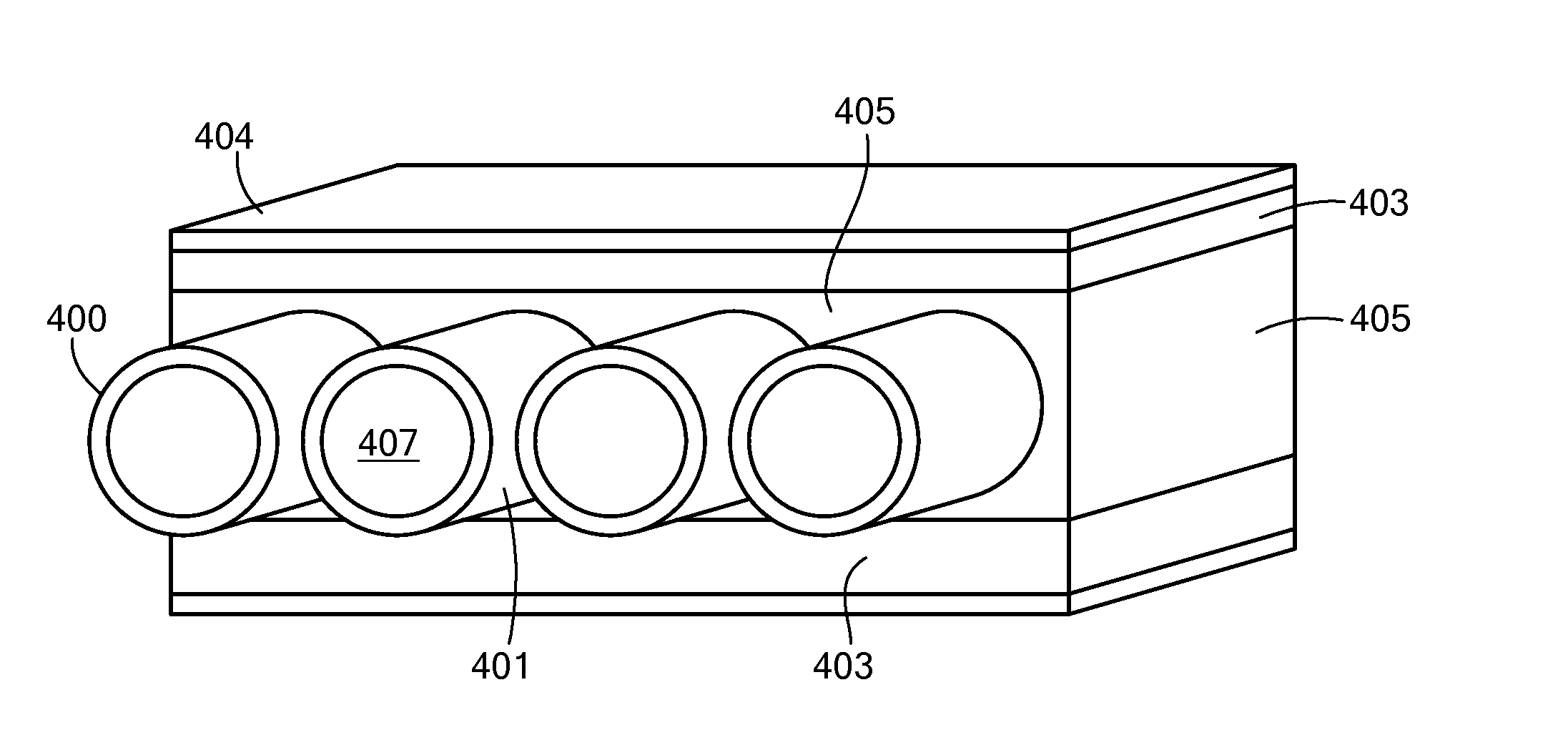X-Ray Inspection using Wavelength-Shifting Fiber-Coupled Scintillation Detectors
a scintillation detector and wavelength-shifting technology, applied in the direction of radiation control devices, radiation particle tracking, optical radiation measurement, etc., can solve the problems of inherently low light collection efficiency of conventional backscatter detectors, noise limit of imaging systems, and different detection requirements of x-ray backscatter inspection systems
- Summary
- Abstract
- Description
- Claims
- Application Information
AI Technical Summary
Benefits of technology
Problems solved by technology
Method used
Image
Examples
Embodiment Construction
[0012]In accordance with various embodiments of the present invention, systems and methods are provided that apply fiber-coupled scintillation detectors to problems in backscatter and transmission x-ray inspection.
[0013]For convenience of notation, a wavelength-shifted fiber-coupled scintillation detector may be referred to herein as an “Sc-WSF” detector.
[0014]In a first embodiment of the present invention, a detector of penetrating radiation is provided that has an unpixelated volume of scintillation medium for converting energy of incident penetrating radiation into scintillation light. The detector has multiple optical waveguides, aligned substantially parallel to each other over a scintillation light extraction region that is contiguous with the unpixelated volume of the scintillation medium, The optical waveguides guide light derived from the scintillation light to a photo-detector for detecting photons guided by the waveguides and for generating a detector signal.
[0015]In othe...
PUM
 Login to View More
Login to View More Abstract
Description
Claims
Application Information
 Login to View More
Login to View More - R&D
- Intellectual Property
- Life Sciences
- Materials
- Tech Scout
- Unparalleled Data Quality
- Higher Quality Content
- 60% Fewer Hallucinations
Browse by: Latest US Patents, China's latest patents, Technical Efficacy Thesaurus, Application Domain, Technology Topic, Popular Technical Reports.
© 2025 PatSnap. All rights reserved.Legal|Privacy policy|Modern Slavery Act Transparency Statement|Sitemap|About US| Contact US: help@patsnap.com



